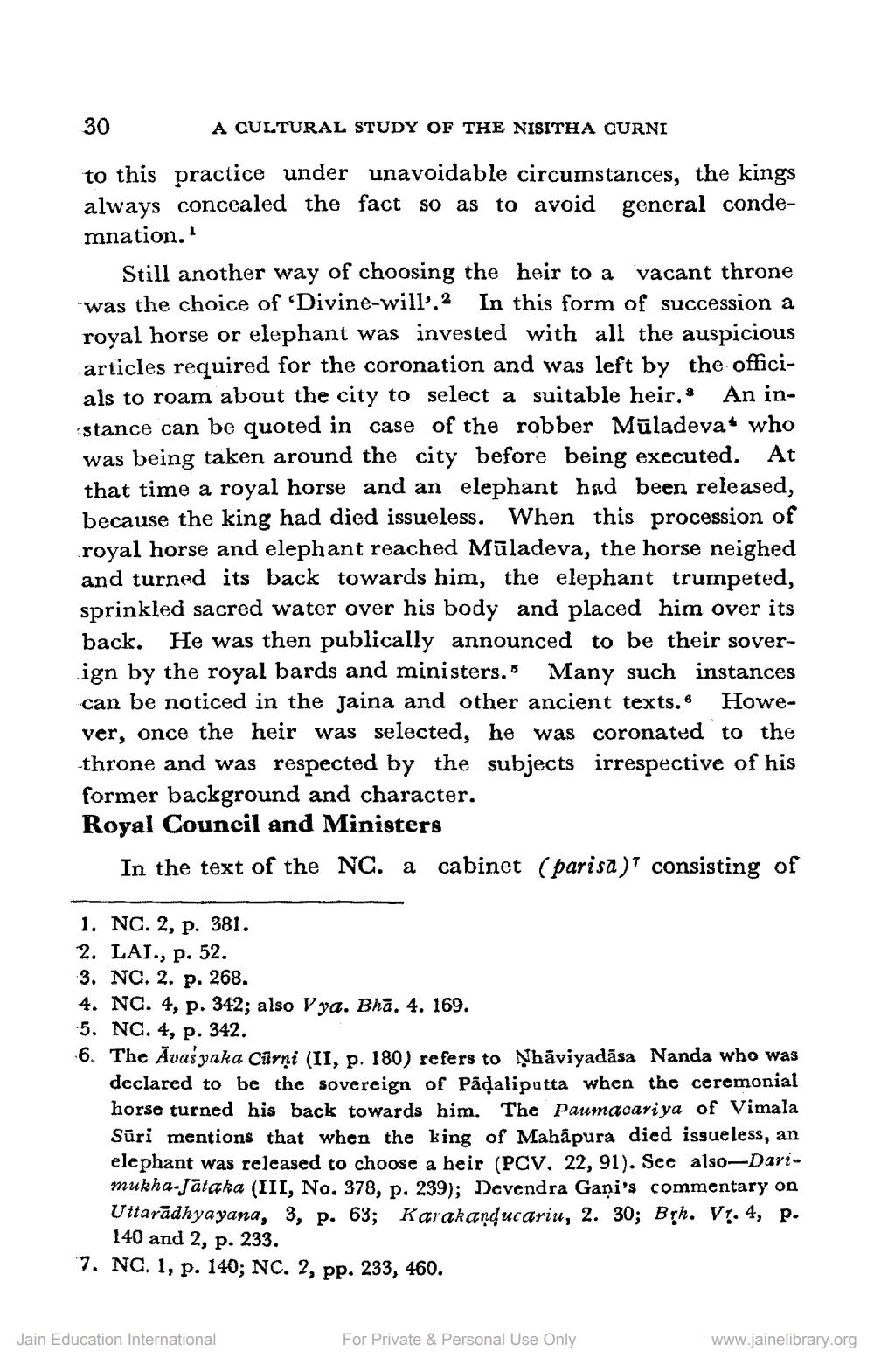________________
30
A CULTURAL STUDY OF THE NISITHA CURNI
to this practice under unavoidable circumstances, the kings always concealed the fact so as to avoid general condemnation.'
Still another way of choosing the heir to a vacant throne -was the choice of Divine-will'.2 In this form of succession a royal horse or elephant was invested with all the auspicious articles required for the coronation and was left by the officials to roam about the city to select a suitable heir. An instance can be quoted in case of the robber Müladeva* who was being taken around the city before being executed. At that time a royal horse and an elephant had been released, because the king had died issueless. When this procession of royal horse and elephant reached Mūladeva, the horse neighed and turned its back towards him, the elephant trumpeted, sprinkled sacred water over his body and placed him over its back. He was then publically announced to be their soverign by the royal bards and ministers. Many such instances can be noticed in the faina and other ancient texts. However, once the heir was selected, he was coronated to the throne and was respected by the subjects irrespective of his former background and character. Royal Council and Ministers
In the text of the NC. a cabinet (parisa)' consisting of
1. NC. 2, p. 381. 2. LAI., p. 52. 3. NC. 2. p. 268. 4. NO. 4, p. 342; also Vya. Bha. 4. 169. 5. NC. 4, p. 342. 6. The Avašyaka Cūrni (II, p. 180) refers to Nhāviyadāsa Nanda who was
declared to be the sovereign of Padaliputta when the ceremonial horse turned his back towards him. The Paumacariya of Vimala Sūri mentions that when the king of Mahāpura died issueless, an elephant was released to choose a heir (PCV, 22, 91). See also-Darimukha.Jataka (III, No. 378, p. 239); Devendra Gani's commentary on Uttarādhya yana, 3, p. 63; Karakanducariu, 2. 30; Brh. VI. 4, p.
140 and 2, p. 233. 7. NC. 1, p. 140; NC. 2, pp. 233, 460.
Jain Education International
For Private & Personal Use Only
www.jainelibrary.org




